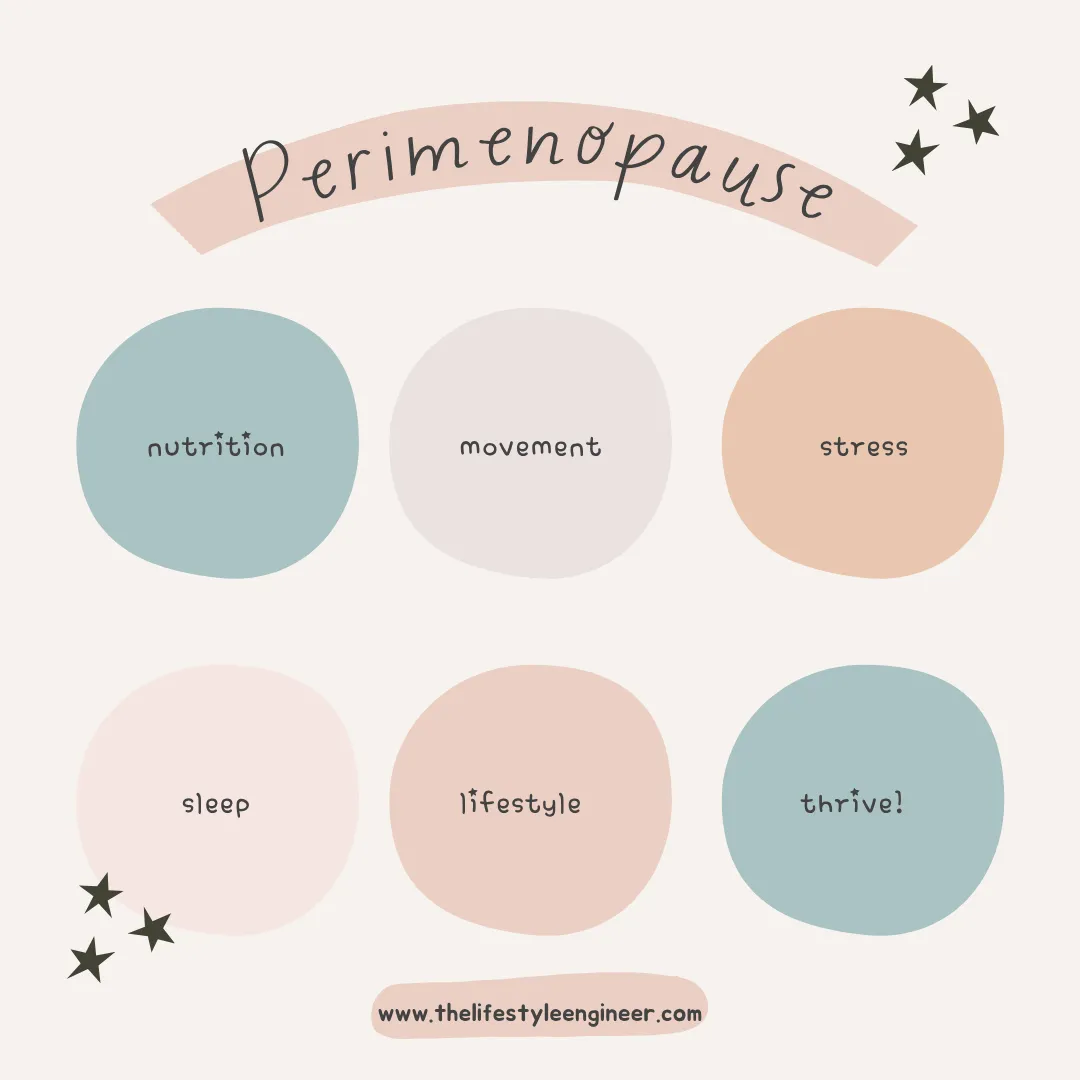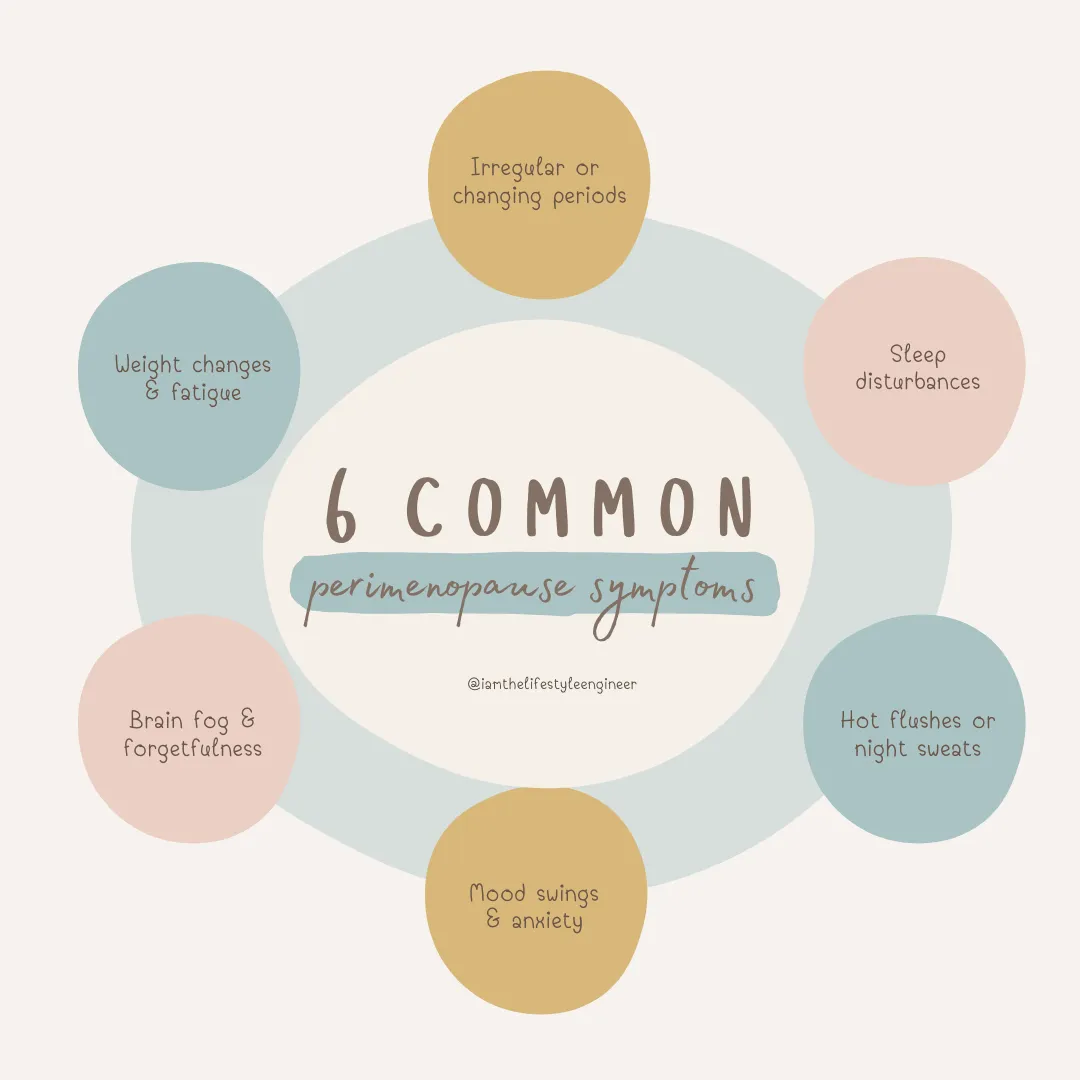
Empowering women to thrive during perimenopause.
“You are not broken. You are mighty beyond measure. Let’s get your hormones back on your side, so you can emerge from this transition as your most magnificent self!”.
Hi, I'm Louise. I'm a health, wellness & lifestyle coach.
I know what it's like to quietly fall apart inside while trying to hold it together. I see you, wanting to feel like yourself again but worrying this is it now. That was me.
I reached burnout before I started listening to my body. I turned my exhaustion around with targeted nutrition, movement, sleep, and stress management. It changed everything and I'm here to help you step into your most powerful and authentic self.

YOU DESERVE TO THRIVE DARLING

Grab Your FREE copy
The Peri Brekkie Blueprint.
In perimenopause, breakfast is the most important meal of the day:
a simple, nutritious breakfast that contains protein, fibre, and omega 3 fatty acids for a nutritious start
4 recipe variations so you never get bored
the fuel you need to keep brain fog away
help reduce inflammation with omega 3 fatty acids
reduce stress and start the day with peace and ease
Thrive darling.

Read the blog
Your weekly dose of information, inspiration and practical know-how to transform your life. Nothing is off limits here - nutrition, movement, stress, sleep, intimacy, connection, boundaries. We talk symptoms, science and how you can manage your perimenopause symptoms.
View my services
I am passionate about the role nutrition plays in our physical and mental health and wellbeing. Check out the ways we can work together to help you get back on track and live with more ease.


Connect with me on socials
Where do you like to hang out online? Come and follow me on your favourite platform for inspiration, information and entertainment.
ARE YOU READY FOR MORE?
Ready to build the life of your dreams?

Let's chat
Ready to work with a coach to uplevel your life and business?
Listen to the
Podcast
view my
services
read the
BLOG
Let's chat
Ready to work with a coach to uplevel your life and business?


Let's learn
Learn at your own pace and make quantum leaps.
Student Love Notes
We've helped so many incredible students to find success as Virtual Assistants...

The VA Business Blueprint helped me to go from feeling completely stuck to starting my business and getting my first client!
Ellen, business name

I enrolled in the VA Services Academy feeling completely lost - within 2 weeks I knew exactly what to offer & what to charge.
Ellen, business name

Beginner to Booked Out was a game-changer for me. Anna and her team are incredible and I'm booked out for the next 3 months!
Ellen, business name
New on the blog...

How to Thrive Through Perimenopause
Growing up I was aware of menopause but it seemed like something our grandmothers experienced and it certainly felt like something that would happen when I was old. The reality is that the time before menopause - perimenopause - can last up to 10 years and can wreak havoc if left ignored. I’m not a grandmother and I certainly don’t consider myself to be old, but I am in perimenopause.
Here’s how supporting your body as you head toward menopause (whether that be this month, this year or this decade) can create the right conditions for you to thrive through the time of transition.
Understanding Perimenopause
During perimenopause our hormones are fluctuating. This can start in your 40s (sometimes earlier) and last several years. Periods may become irregular, and you might notice changes in sleep, mood, energy, and metabolism.
Support your body during this time will help balance your hormones and manage your symptoms.
Nutrition That Supports Hormonal Balance
Your body needs the right building blocks to make and metabolise hormones efficiently. Focus on:
Protein: Supports hormone production and preserves muscle mass.
Healthy fats: Essential for hormone synthesis.
Micronutrients: Support hormone balance, bone health, and energy.
Phytoestrogens: Plant compounds can gently support oestrogen levels.
Tip: Small, consistent changes often work better than drastic dietary overhauls.
Movement for Strength, Metabolism, and Mood
Exercise helps manage weight, supports heart and bone health, and even stabilises mood. A well-rounded routine might include:
Strength training: Preserves muscle and bone density.
Cardiovascular activity: For heart and lung health.
Mind-body movement: Reduces stress and supports flexibility.
Prioritise Stress Management
High stress affects cortisol, which can disrupt hormone balance and worsen perimenopausal symptoms like sleep disturbances and mood swings. Try:
Daily mindfulness or breathing exercises.
Journaling to process thoughts and emotions.
Gentle nature walks or low-impact movement that feels restorative.
Sleep and Recovery
Hormone fluctuations often impact sleep. Supporting restorative rest is essential:
Maintain a consistent sleep routine.
Limit screens 1–2 hours before bed.
Keep your bedroom cool, dark, and quiet.
Consider magnesium or calming herbal teas (like chamomile) to support relaxation.
Lifestyle Choices Matter
Small choices can have a big impact over time:
Avoid smoking and limit alcohol.
Stay hydrated.
Schedule regular check-ups to monitor bone density, heart health, and hormone changes.
Supporting your body with good nutrition, movement, stress management, and healthy lifestyle habits during perimenopause gives you the best chance of moving through it with energy and ease.
Grab my free guide From Frazzled to Fabulous for 5 simple actions to help you feel more calm, clear headed and like yourself as you move through this time of transition. Happy hormones will enable you to thrive!





